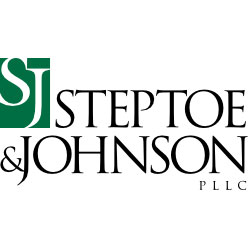On March 29, 2021, Governor Jim Justice signed into law Senate Bill 5, which amended the West Virginia Consumer Credit and Protection Act (“WVCCPA”). The amendments were met with optimism by businesses in West Virginia as they provide enhanced procedures intended to deter frivolous lawsuits. Initially enacted in 1974, the stated purpose of the WVCCPA was to “protect the public and foster fair and honest competition.” However, since its enactment, the WVCCPA has been criticized for its notoriously consumer-friendly application. As amended, the WVCCPA provides (1) criteria for a court to evaluate reasonable attorney’s fees and expense awards to the consumer; (2) an explicit process for an offer to settle or offer of judgment; (3) an avenue for the recovery of attorney’s fees from plaintiffs in the event for finding a claim was frivolous or made in bad faith or upon rejection of a settlement without justification; and (4) a unified mechanism for pre-suit notices of violation and offers to cure.
The new amendments to the WVCCPA intend to help equalize the positions of the consumer plaintiff and defendant in claims brought under the WVCCPA in several ways.
First, the amendments provide 12 factors a court should examine to determine reasonable attorney’s fees and expenses to the consumer plaintiff. The court will utilize these 12 factors when determining reasonable attorney’s fees and expenses for the defendant when a plaintiff consumer has brought a claim in bad faith or for harassment.
Second, the amendments provide a mechanism to make an offer of judgment. The amendments seek to penalize a consumer plaintiff who rejects a reasonable offer of judgment. If the final judgment is one of no liability or if the final judgment, inclusive of all actual damages, civil penalties, and any other monetary or equitable relief, is less than 75% of the offer, the defendant may recover attorney’s fees and expenses. From the date of the offer through the entry of judgment, the consumer plaintiff may be barred from recovering attorneys’ fees and costs.
Third, the amendments address instances in which a frivolous claim or defense has been made against the prevailing party. Under the new amendments to the WVCCPA, a party prevailing after a judgment has been entered may move the court to determine whether the opposing party presented a frivolous claim or defense. Following the motion, the court holds a separate bifurcated hearing to determine if the frivolous claim or defense was asserted and, if the claim or defense was frivolous, to award damages against the party presenting those claims.
Under the amendments, the term “frivolous claims” is quite broad in its scope. Specifically, a “frivolous claim” lacks substantial justification, is not made in good faith, is made with malice, is made with a wrongful purpose, is made without any reasonable belief that a court would accept the claim, or a claim interposed for delay or harassment.
Fourth and finally, the amendments help codify a unified mechanism for pre-suit notices of violation and offers to cure. Before being amended, the nature of the claim determined which section of the WVCCPA governed the claim. Instead, the amendments provide a unified mechanism for consumer plaintiffs to transmit required notices and defendants to transmit offers to cure. More specifically, a consumer plaintiff must inform the defendant of the alleged violation 45 days before bringing any action under the WVCCPA. Once receiving notice of the alleged violation, the defendant has 45 days to make a cure offer if received by the agent or at the principal place of business, and 20 days to make a cure offer if a cause of action has already been filed. A consumer plaintiff then has 20 days from receipt of the cure offer to accept or refuse.
Based on the risk of the new penalties imposed under the amendments, parties will need to think twice before asserting claims or defenses in actions under the WVCCPA. Further, the penalties provided in the amendments will likely impact settlement negotiations. Defendants can utilize offers of judgments to leverage their positions when negotiating with consumer plaintiffs. When an offer of judgment is sent to consumer plaintiffs, they need to incorporate the risk that they may not recover their attorney’s fees and costs. Additionally, they may have to pay the defendant’s fees and costs should a final judgment be entered below 75% of the offer.
In summation, the amendments to the WVCCPA are an essential step to ensure a balanced equilibrium between consumer plaintiffs and defendants. The amendments provide penalties for which plaintiffs and defendants will need to be aware as they may expose their clients to fees and costs not recoverable before the enactment of the amendments. Consumer plaintiffs will need to be especially careful, as the new amendments appear to target frivolous claims and thus, may require consumer plaintiffs to ensure claims brought have merit.
These materials are public information and have been prepared solely for educational purposes. These materials reflect only the personal views of the authors and are not individualized legal advice. It is understood that each case is fact-specific and that the appropriate solution, in any case, will vary. Every attempt was made to ensure these materials are accurate; errors or omissions may be contained therein, for which any liability is disclaimed.

David E. Chaney

Peter Raupp
David E. Chaney is an associate in the Bridgeport office of Steptoe & Johnson PLLC. He is a member of the Business Litigation Practice Group and Energy Litigation Practice Group. David seeks to help business clients understand the impact of legal proceedings they may face during their work. He can be reached at
David.Chaney@Steptoe-Johnson.com or (304) 933-8188.
Peter Raupp is a member of the Charleston office of Steptoe & Johnson PLLC. Peter focuses his litigation practice on commercial litigation, general litigation, professional liability, civil rights and appellate law. He can be reached at Peter.Raupp@Steptoe-Johnson.com or (304) 353-8125.







